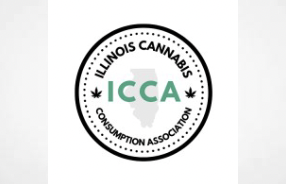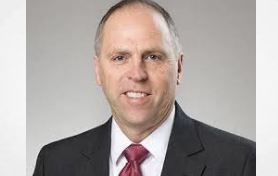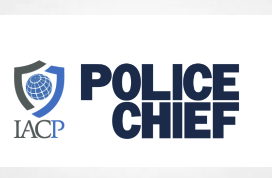As everyone reading this article likely knows, the Miller Amendment unexpectedly passed a bloc vote in the US House Committee on Agriculture on Thursday. In a last minute turn of events, Chairman Glenn “GT” Thompson ordered an “en bloc” vote of all amendments, rather than voting on them individually. This was presumably done because he knew that he did not have enough votes to pass the Miller Amendment on its own. Unfortunately, the tactic worked. This is especially frustrating given that the Chairman has previously expressed interest in retaining the current definition of “hemp” for the next farm bill.
It is not an exaggeration to say that the Miller Amendment was specifically designed to kill the hemp cannabinoid industry. This is because the Miller Amendment:
- Changes the definition of “hemp” so that total THC must not exceed 0.3%.
- Expressly excludes viable seeds from a marijuana plant from the definition of “hemp”, even though they contain almost no THC and the DEA itself considers them to be hemp.
- Expressly excludes cannabinoids that the plant produces but which are synthesized or manufactured outside the plant from the definition of “hemp”, even if they are produced using cGMP or other internationally accepted quality control standards and are identical to the naturally occurring ones.
- Expressly excludes “quantifiable amounts” of THC, including THCa, and “any other cannabinoids that have similar effects (or which are marketed to have similar effects) on humans or animals as THC” from the definition of “hemp”.
Taken together, these provisions of the Miller Amendment strike a deadly blow to the entire hemp cannabinoid industry. If enacted into law, the hemp industry as we know it will no longer exist. If you read the provisions carefully, it should be clear that the Miller Amendment was not written by a hack or even someone who is simply concerned about so-called “intoxicating cannabinoids”. This amendment was written by insiders with a very specific agenda. Presently, the author is not known to me, but this policy has been the subject of a major lobbying push by a select group of Big Marijuana organizations to erase the hemp industry.
As reported by Chris Roberts in MJBizDaily,
“The U.S. Cannabis Council – members of which include many multistate marijuana operators – circulated a letter asking lawmakers to exclude from the new Farm Bill any hemp-derived product with “detectable quantities of total THC and any other intoxicant that can be derived from hemp including other forms of THC.” (emphasis added)
In case you’re wondering, the US Cannabis Council includes the following companies, individuals, and organizations:
Board Members-
- Mike Forenza
- Michael Bronstein
- David Goubert
- Adam Goers
- David Klein
- Eyad Aboabdo
- Charlie Bachtell
- Pete Meachum
- Matt Darin
- Bryan Barash
- Rebecca Brown
- Nico Pento
- Jeremy Unruh
- Dan Pabon
- Brian Herrington
- James A. Leventis, Esq.
- Shawn Hauser
Member Companies / Organizations-
- AE Global
- ATACH
- AYR Wellness
- The Cannabist Company
- Canopy Growth
- Chubby Gorilla
- Cresco Labs
- Cronos Group
- Curaleaf
- Dutchie
- Elevate Cannabis
- Green Thumb Industries
- PharmaCann
- Schwazze
- ScottsMiracle-Gro
- Verano
- Vicente LLP
The US Cannabis Council is not the only villain in the war against hemp, but its members include some of the worst actors. It and its members actively advocate for cannabis policy that:
- promotes the interests of a small handful of large corporate marijuana companies (ie, marijuana monopolists) over the interests of small businesses;
- advocates for limited licensure and vertical integration;
- uses repurposed “Reefer Madness” fear mongering tactics about cannabis intoxication to further its cause; and
- has initiated a “total war” against hemp with the express goal of completely destroying the hemp cannabinoid industry in what amounts to a bloody turf war.
For anyone who did not previously believe that last point about Big Marijuana’s “total war” against hemp or who has ever asked “why can’t we all just get along“, today’s Congressional shenanigans should be ample proof of Big Marijuana’s end-goal of completely eradicating the hemp industry. The Big Marijuana lobby and the monopolistic corporations it serves are willing to resort to backhanded political tactics and otherwise go the distance to take over the cannabis industry to the complete exclusion of the hemp sector. It is time to unite and fight back. This is our rallying cry: Hemp is Cannabis. What is good for the hemp industry is good for the cannabis industry.
As I discussed in a recent keynote speech at Noco, the hemp industry is emerging as the paradigm for the future of cannabis. By defeating the Big Marijuana Monopolists and promoting reasonable laws/regulations such as the Three Pillar Approach (see below), we have an opportunity to rewrite the cannabis story and to create an industry where small businesses and farmers can thrive and consumers have access to a wide array of safe cannabis products through a variety of distribution channels. Rather than focusing on cannabis intoxication, vertical integration, expensive licensing, prohibiting homegrow, a zero-sum turf war, or any other such nonsense, the Three Pillars Approach addresses three reasonable regulatory “zones” for consumer safety and a healthy industry: (1) age gating, (2) quality control for production and manufacturing, and (3) standardized and informative labeling and marketing. Read/listen to more on the Three Pillars here. I welcome your input.
Fortunately, a lot of marijuana companies are beginning to see the “hemp light”. I regularly receive calls from marijuana companies who have decided to pivot to the hemp industry as the path forward for their businesses. They see hemp as a common sense solution, not a “loophole”, and want assistance making the journey. Hemp is the great uniter and we welcome anyone who believes in fair play, reasonable regulations, and a healthy cannabis economy.
Here are some suggestions on how to join the fight and help hemp win the war against oppressive monopolistic interests:
- Call your federal lawmakers today and let them know that you support hemp. Tell them to “Vote No” to the Miller Amendment and to retain the current definition of hemp.
- Support the organizations that are fighting for hemp with your donations: the American Healthy Alternatives Association, the Hemp Roundtable, the Midwest Hemp Council, and the Hemp Industries Association. These organizations are leading the fight against a well-funded greed machine and they cannot do it without your support. If you want the hemp industry to survive then donate money to these organizations today! Don’t screw around. Do it now.
- Call “bullshit” on the organizations that purport to be pro-cannabis but advocate against hemp. Hemp is cannabis and these organizations are working against your interests. Inform and educate your friends, colleagues, customers, competition, lawmakers, lobbyists, news media, and anyone else who has any interest in cannabis that there is a war raging against hemp that will impact the future of cannabis. NOW IS THE TIME!
- Stay up to date on news about the farm bill and state-level bills that deal with hemp. We are in a critical time for the industry and things are moving very rapidly. You owe it to yourself and to the industry to stay informed.
- Finally, set aside differences with your competition and focus instead on creating a united hemp industry that is dedicated to a positive future for cannabis. If we win there will be plenty of time to compete, but if we lose there will no industry.
The future of cannabis will be determined by what is happening right now. Act accordingly.
May 24, 2024

PHOTO CREDIT- BEN WRIGHT.
Rod Kight is an international cannabis lawyer. He represents businesses throughout the cannabis industry. Additionally, Rod speaks at cannabis conferences, drafts and presents legislation to foreign governments, is regularly quoted on cannabis matters in the media, and is the editor of the Kight on Cannabis legal blog, which discusses legal issues affecting the cannabis industry. You can contact him


















